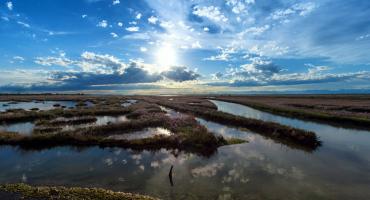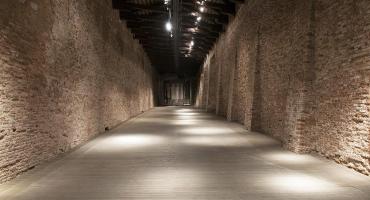The first inhabitants of the lagoon were refugees from cities fleeing the barbarians, people accustomed to wealth and prosperity who suddenly found themselves in a hostile and uncultivable environment. The only activities that allowed for survival were commerce and navigation with the people of Dalmatia, Istria, and Ravenna, who were subjects of Byzantium.
Venice became a meeting point between the demands of the barbarians, who offered grains, poultry, worked metals, and timber from the mainland, and other peoples, including the Turks and Arabs later on. But to start trading, one needed something to buy with, something of value, and they discovered this under their feet: salt.
Initially, there were salt pans everywhere in Venice. The common resource of salt was collected and stored in large warehouses called "Saloni" and then exported along the Adriatic coast in exchange for cash. The first laws enacted to develop and regulate trade with Venice were extremely important. These laws established an exchange based on barter, meaning imported goods were not paid for with money but with other goods, allowing the state to accumulate money.
The Venetians began to establish branches abroad that negotiated on behalf of the central office. Subsequently, foreign merchants began to arrive in Venice, thus assuming the risks of transportation. This led to the emergence of the "Fonteghi" in the city, from the Arabic ‘funduqh’ meaning hotel-warehouse, where foreigners were required to reside for control purposes.



